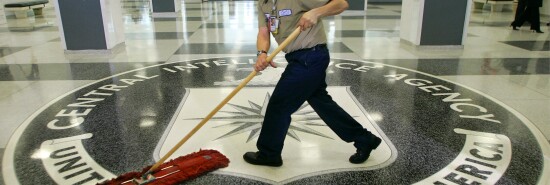
We still haven’t addressed the Iraq War’s real intelligence failure
Michael Rubin
It has now been more than two decades since Secretary of State Colin Powell briefed the United Nations on America’s case for preemptive war on Iraq. “These are not assertions. What we’re giving you are facts and conclusions based on solid intelligence,” he declared.
Powell did not knowingly mislead. But how did the intelligence community get Iraq’s weapons of mass destruction so wrong? The scandal was huge, even more so since the Bush administration made WMD its prime public rationale, even though many other factors contributed to President George W. Bush’s decision to go to war.
REMEMBERING MY CIA SERVICE IN IRAQ
In the wake of the failure, the intelligence community did what Washington should expect: circle the wagons and shirk responsibility.
Politics helped.
Within the Pentagon, uniformed personnel and civilians did not see eye-to-eye. The CIA had its own assets it sought to promote. Each was willing to kneecap the other. Journalists gleefully joined in to amplify leaks and launder spurious allegations. Politicians, meanwhile, cared less about what went wrong than making their opponents pay a price. As a result, the fundamental problem that enabled such an intelligence failure remained unaddressed.
There are multiple ways to generate intelligence, and two major ways are via the collection of signals intelligence (SIGINT), such as intercepting phone calls, and human intelligence (HUMINT), more traditional spies.
Saddam Hussein had previously concealed a nuclear program. His own sons-in-law blew the whistle in 1995, defecting to Jordan with boxes of documents outlining the program. This revelation embarrassed the International Atomic Energy Agency whose inspections gave Iraq a clean bill of health. As sanctions took their toll, Saddam did not want his own generals and supporters to know he had given up the nuclear program, so he lied. In closed meetings, he told his inner circle he was pursuing nuclear weapons and other WMD. Some intercepted calls showed top aides discussing the program with each other. That was the SIGINT.
Then there was the HUMINT. Television shows often misconstrue lie detector tests, or polygraphs. They cannot determine if a statement is true; rather, they only measure deception.
Iraqi opposition politician Ahmad Chalabi was a red herring.
By law, either the CIA or Defense Intelligence Agency debriefs defectors. When subject to polygraphs, they would often affirm that Iraq had a WMD program because that is what they heard in Iraq. I spoke to one engineer in the Iraqi defense sector whom the CIA actually questioned before the war. He said he told them Iraq was working on a nuclear weapon. While he reported his factory did not produce any components, he just assumed that was because Iraq was purchasing them from abroad. What he reported, he honestly believed. There was not the type of deceit a polygraph could reveal.
In effect, the SIGINT supported the HUMINT and vice versa, leading the intelligence community to accept the worst-case scenario. This, in turn, colored the interpretation of satellite images of potentially dual-use equipment.
There were some naysayers, but what journalists missed is that the same analysts who leaked their supposed dissents had elsewhere affirmed Iraq’s ambitions. Intelligence reports are seldom black-and-white but are often a hodgepodge of gray with opposite points made for the sake of bureaucratic ass-covering.
CLICK HERE TO READ MORE FROM THE WASHINGTON EXAMINER
The tragedy of subsequent partisanship — especially in the House and Senate intelligence committees — is that there has been no basic correction to ensure such a dynamic does not repeat.
Michael Rubin (@mrubin1971) is a contributor to the Washington Examiner’s Beltway Confidential. He is a senior fellow at the American Enterprise Institute.
